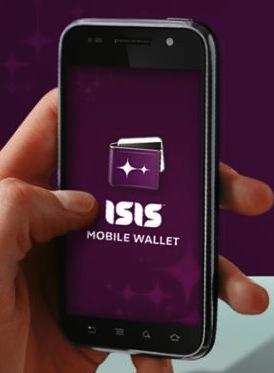Isis Learns Lessons as It Moves Toward Expansion
NFC Times is Expanding Its Coverage
This story is a free sample of new premium content from NFC Times, the most authoritative source of news and analysis in the industry.
To view this sample story, click here:
Or download it as part of a free sample of the world’s first global PDF newsletter devoted to the business of NFC and related topics:
NFC Times: The Intelligence Report
Become a subscriber to NFC Times to receive future issues of the newsletter and exclusive online news and analysis:
Subscription Options

As the Isis joint venture gears up for a planned commercial expansion, a senior member of the technical staff at its largest member telco, Verizon Wireless, noted that testing, certification and getting the customer experience right has required much work.
Verizon’s Larry Rybar, speaking at the SIMposium USA conference in Las Vegas in May, said that the joint venture and its member telcos have learned a number of lessons in preparing for and conducting their ongoing two-city trial and beyond.
While Rybar didn’t discuss what sources have told NFC Times is a planned national expansion this year, he indicated that much effort has gone into making the Isis wallet secure and scalable.
“You just can’t test this stuff enough,” he said. “Here’s an example: When we were working on this, we have the certification bodies when we were testing the cards. And you have Isis themselves doing their own testing. Visa, MasterCard, AmEx, Discover do their own testing. SIM card vendors do their own testing. And on top, the MNOs, we do our own testing.”
But he said project organizers still found security issues. They recognize that even small security problems would be enough to kill the wallet.
“They weren’t huge; they were issues,” Rybar said during his presentation. “And if this stuff gets out on the Internet, you’re dead. No one trusts your service.”
Rybar added that those problems have or are in the process of being fixed. His description of the fixes indicated he was talking about future launch plans.
“I can guarantee you, when the Isis card launches, it will be safer than your wallet today because of all the testing and hard work we’ve done,” he said.
But Rybar called for streamlining of the certification process for NFC SIM cards carrying payment applications, in line with what the Smart Payment Association, a group of major smart card vendors, has recommended.
The association, in a position paper it released in April, noted that even customizing an NFC SIM card for a specific mobile operator–which it contends has “no impact on the management or execution of the payment application itself”–requires recertification of the SIM. Telcos customize their SIMs often.
 “The thing for MNOs, it really slows us down,” he said. “And the whole certification process is slow and not flexible. It slows down speed to market. And for (the) SIM card vendor, they have products on the shelves ready to sell, but can’t sell them because they’re not certified.”
“The thing for MNOs, it really slows us down,” he said. “And the whole certification process is slow and not flexible. It slows down speed to market. And for (the) SIM card vendor, they have products on the shelves ready to sell, but can’t sell them because they’re not certified.”
Adding nonpayment applications to a SIM, such as Mifare-based transport ticketing or building access control, could also create problems, he said.
“So, if you want to do some new features on the card, competitive reasons, fixes: ‘We want to introduce something in telecom SD (secure domain).’ Well, guess what? It affects those other two SDs,” he said. That could require recertification.
Isis or the telcos themselves also certify their own NFC phones, in addition to certifications by the payment schemes, such as Visa and MasterCard.
As of this month, there were at least 40 models certified by MasterCard to run PayPass on SIM cards, and likely a comparable number or nearly so for one or more of the other payment schemes. MasterCard and one or more of the other schemes has also certified an iPhone 5 case to be used by Isis with microSD cards.
Rybar said that in the future he expected all or most smartphones “will be Isis capable.”
But phone certification also hasn’t been without problems and at the time of his presentation, he said there were still “a few devices that are causing us trouble.” But he added: ”we’re working through those issues, getting software updated.”
Among past problems users of the Isis Mobile Wallet encountered was the need to update the software on their smartphones when they tried to activate the wallet.
“And that took a while, and the customer wasn’t happy,” Rybar said. “We’ve eliminated that.”
It remains to be seen how Isis plans to carry out the expansion. Most sources expect it to distribute the NFC SIMs and phones to shops nationwide to seed the expansion, but to gradually expand its consumer promotion to more and more cities.
Rybar said any successful NFC project requires the Isis telcos to work with each other as well as with other parts of the ecosystem, such as banks, payment schemes and vendors–not always easy when big companies are involved.
And among other lessons Isis has learned is that if “you want to keep a smile on that customer’s face, this stuff has to work and it has to work quickly,” Rybar said.
“You go to make a tap, and it doesn’t work, or they fumble to get the wallet open, before you know it, there’s a line forming; the customer gets embarrassed, and they end up paying cash,” he said. “You think they’re going to use it next time? Probably not. So it has to work; it has to work well right at the beginning.”












